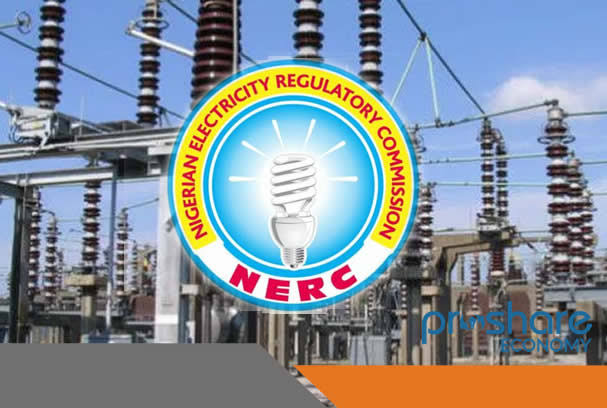The Nigerian Electricity Regulatory Commission (NERC) has released its first-quarter 2025 report, revealing significant payment defaults by international and domestic electricity customers, raising concerns about the financial stability of the Nigerian power sector. Benin and Togo, two of Nigeria’s key bilateral electricity customers, have collectively defaulted on over $11 million in payments for electricity supplied during the first three months of 2025. This hefty sum represents a substantial portion of the total $17.24 million invoiced to all six international bilateral customers, highlighting the severity of the issue and its potential impact on Nigeria’s energy market. While Niger Republic fully settled its $3.03 million invoice, the non-payment by Benin and Togo paints a bleak picture of cross-border energy trade and casts doubts on the financial viability of these agreements.
The report details the specific payment failures of Benin’s Société Béninoise d’Énergie Électrique (SBEE) and Togo’s Compagnie Energie Electrique du Togo (CEET). Both entities have existing bilateral contracts with Nigerian power providers. Togo’s CEET, with agreements with Odukpani and Paras Energy, made no payments whatsoever during the first quarter. Benin’s SBEE, while making some partial payments through its contracts with Transcorp and Paras, still fell significantly short of its obligations. Specifically, PARAS-CEET remitted a mere $0.63 million out of a $1.92 million invoice, while TRANSCORP-SBEE (Afam 3) paid only $0.3 million of its $1.73 million bill. Similarly, TRANSCORP-SBEE (Ughelli) remitted $1.82 million against an invoice of $4.97 million. The complete lack of payment from ODUKPANI-CEET and PARAS-SBEE further exacerbates the financial strain on Nigerian power suppliers.
The overall remittance rate for international bilateral customers stood at a paltry 33.70%, a figure significantly impacted by the defaults of Benin and Togo. This persistent pattern of underpayment from these neighboring countries raises critical questions about the enforceability of bilateral agreements and the long-term sustainability of cross-border electricity trade. NERC has repeatedly issued warnings about the potential for supply disruptions to these nations if payment issues remain unresolved. These warnings underscore the seriousness of the situation and the potential consequences for both the defaulting nations and the stability of Nigeria’s electricity market. Continued defaults could force NERC to take drastic measures, significantly impacting regional energy cooperation and access to electricity in Benin and Togo.
Domestically, the picture is somewhat brighter, but challenges persist. While some Nigerian bilateral customers fulfilled their payment obligations, others defaulted entirely or only made partial remittances. Mainstream/Inner Galaxy stands out as a positive example, fully settling its N1.64 billion invoice. However, several companies, including NDPHC/SUNFLAG, TAOPEX/KAM INT, TAOPEX/Kam Steel, and Sapele/Phoenix, failed to make any payments against invoices totaling hundreds of millions of naira. These domestic defaults, while smaller in scale compared to the international defaults, still contribute to the financial strain on the Nigerian power sector. They highlight the need for stronger enforcement mechanisms and improved payment compliance within the domestic market.
The NERC report further highlights the partial payment practices of several other domestic customers. NDPHC/WEEWOOD remitted N71.74 million out of a N104.03 million invoice, while NORTH SOUTH/STAR PIPE paid N21.51 million of its N32.39 million bill. Trans Amadi (OAU) and Trans Amadi (FMPI) collectively paid N23.57 million against an invoice of N35.98 million. Alaoju GENCO/APLE’s payment of N100 million against an invoice of N455.36 million, representing a remittance rate of just 21.96%, further illustrates the persistent challenges of ensuring timely and full payments. These partial payments, though better than no payment at all, still create cash flow issues for power providers and hinder their ability to invest in infrastructure upgrades and maintenance.
A particularly concerning case highlighted by NERC is the continued non-payment by Ajaokuta Steel Company, a designated special customer. The company failed to make any payments on its substantial invoices of N1.38 billion (NBET) and N134.05 million (MO), perpetuating a long-standing pattern of default. This continued non-payment from a major industrial player raises serious questions about the effectiveness of the special customer designation and the ability of the Nigerian power sector to secure revenue from key consumers. The cumulative effect of these domestic and international payment defaults casts a long shadow over the viability of bilateral and special supply arrangements within the Nigerian electricity market. Experts warn that if these payment issues are not addressed effectively, they could undermine the financial sustainability of the sector and jeopardize efforts to improve electricity supply and reliability across the country. Addressing these challenges will require a multi-pronged approach, including strengthening contractual obligations, improving payment enforcement mechanisms, and fostering greater financial discipline within the sector.


